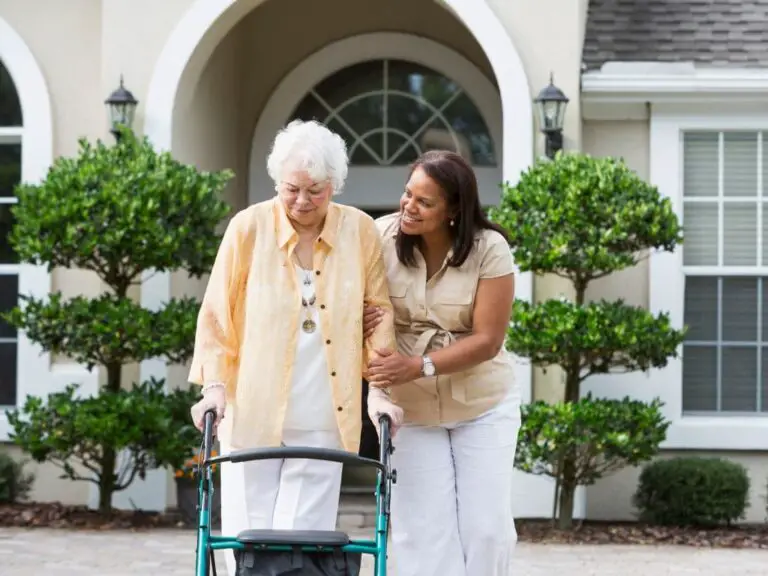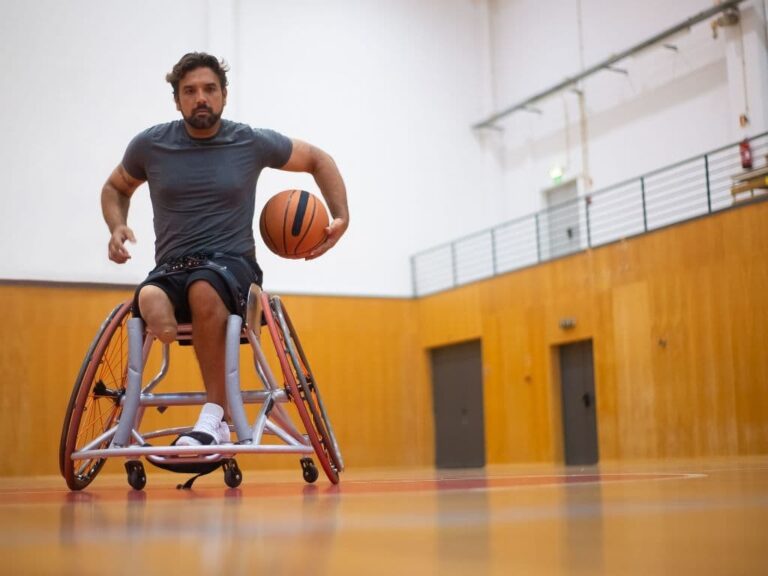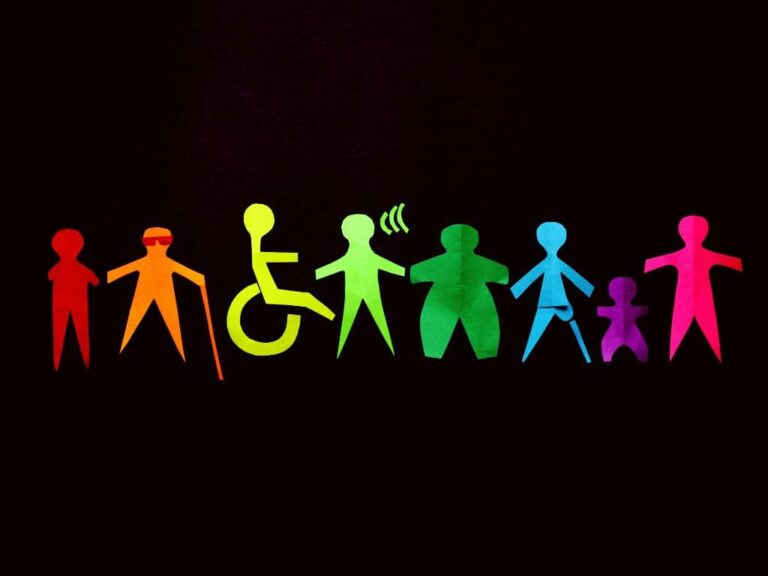Does Georgia Medicaid Pay for Caregivers?
Yes, Georgia Medicaid does cover caregiver services through various programs. The Structured Family Caregiving program, part of Georgia’s Elderly and Disabled Waiver Program, uses Medicaid funding to pay for caregiving and community support services for eligible individuals. Other programs such as the Community Care Services Program Waiver (CCSP) and the Independent Care Waiver Program (ICWP) also provide in-home support services, including personal care and skilled nursing care, for Medicaid-eligible adults with severe physical disabilities, traumatic brain injuries, or those who are elderly.

Does Georgia Medicaid Cover Caregiver Services?
Georgia Medicaid does cover caregiver services. Georgia Medicaid provides a number of programs that offer support and financial assistance to caregivers, particularly those caring for elderly, disabled, or chronically ill family members.
One such program is the Structured Family Caregiving (SFC) program, a part of Georgia’s Elderly and Disabled Waiver Program. The SFC program uses Medicaid funding to cover caregiving and community support services. If an individual is caring for a family member they live with, who is not their spouse or legal responsibility, they may qualify for a tax-free weekly stipend.
The Community Care Services Program (CCSP) is another Medicaid waiver program that provides a range of community-based services to assist individuals who are older and/or have disabilities. Services that may be allowed under CCSP include personal care, meal preparation, light housekeeping, wound care, skilled nursing care, and respite care.
Similarly, Georgia’s Independent Care Waiver Program (ICWP) offers personal, in-home support services for adult Medicaid recipients with severe physical disabilities and/or traumatic brain injury. Services provided through ICWP depend on the person’s needs, but may include homemaking and personal care services, companion services, skilled nursing, respite care for family caregivers, counseling, case management, emergency response system, environmental modifications, occupational therapy, and specialized medical equipment and supplies.
What Types of Caregiver Services Are Covered By Georgia Medicaid?
Georgia Medicaid covers a wide range of caregiver services for individuals who are elderly, disabled or living with chronic illnesses. These services are aimed at providing the necessary support for these individuals to live safely and comfortably in their own homes or community, rather than in institutional settings like hospitals or nursing homes.
Personal Care Services: This includes assistance with daily living activities such as feeding, dressing, bathing, toileting, getting in and out of bed, moving around the house and transportation to and from appointments.
Meal Preparation: Caregivers can assist with preparing meals for individuals who are unable to do so themselves due to physical or mental limitations.
Light Housekeeping: This includes minor cleaning tasks like dusting, vacuuming, washing dishes, laundry, and other tasks to maintain a clean and healthy living environment.
Skilled Nursing Care: For those with more complex medical needs, skilled nursing care is covered. This can include wound care, medication management, and other specialized medical treatments.
Respite Care: This service provides temporary relief for primary caregivers, allowing them to take a break from their caregiving responsibilities.
Counseling: Some programs also cover counseling services to provide emotional and psychological support to individuals and their caregivers.
Case Management: This service helps coordinate various aspects of a person’s care, including medical appointments, therapies, and other services.
Emergency Response System: This service provides an emergency alert system for individuals who may need immediate medical attention.
Environmental Modifications: This includes home modifications such as installing ramps or grab bars, widening doorways, or other modifications to make the home safer and more accessible.
Occupational Therapy: This service helps individuals learn or relearn the skills needed for daily living and working.
Specialized Medical Equipment and Supplies: This includes items such as wheelchairs, walkers, hospital beds, and other medical equipment and supplies needed for care.
Who Is Eligible For Georgia Medicaid?
Eligibility for Georgia Medicaid is determined by various factors, including age, income, and health status. The program offers health insurance and family caregiver support programs to people who meet specific criteria.
Approximately 2,100,000 Georgians are enrolled in Medicaid. Georgia Medicaid provides at least nine programs to aid family members of individuals who are elderly, disabled, or living with chronic illnesses.
For the Structured Family Caregiving (SFC) program, which uses Medicaid funding to pay for caregiving and community support services, the person being cared for must be enrolled in an eligible Georgia Medicaid program. The caregiver must live with the person they are caring for, and this person cannot be their spouse or legal responsibility.
The Community Care Services Program (CCSP) is a Medicaid waiver program that provides a range of community-based services to assist individuals who are older and/or have disabilities to achieve safe, self-reliant lives. Participants must meet the same medical, functional, and financial eligibility criteria as for placement in a nursing facility under Medicaid and be approved by a physician.
The Independent Care Waiver Program (ICWP) offers personal, in-home support services to help adult Medicaid recipients with severe physical disabilities or traumatic brain injury (TBI) live in their homes or in the community. To be considered eligible, a person must be 21-64 years of age with severe physical disabilities and/or TBI and requires a level of care that is typically provided in a hospital or nursing home.
Applicants must be capable of directing their own services (individuals with a TBI do not have to meet this criteria), have a severe physical impairment and/or TBI that substantially limits one or more activities of daily living and requires the assistance of another individual, be medically stable but at risk of placement in a hospital or nursing facility because community-based support services are not available, and be able to be placed safely in a home or community setting.
What Services Does Georgia Medicaid Cover?
Georgia Medicaid covers the services listed below.
- Inpatient Hospital Services
- Outpatient Hospital Services
- Physician Services
- Laboratory and X-Ray Services
- Early and Periodic Screening, Diagnostic, and Treatment (EPSDT) Services
- Family Planning Services
- Rural Health Clinic Services
- Federally Qualified Health Center (FQHC) Services
- Nurse Midwife Services
- Certified Pediatric and Family Nurse Practitioner Services
- Freestanding Rural Health Clinic (RHC) Services
- Home Health Care Services
- Prescription Drugs
- Medical Care by Other Licensed Practitioners
- Dental Care
- Optometry Services
- Podiatry Services
- Prosthetics
- Mental Health Services
- Substance Abuse Treatment Services
- Rehabilitation and Therapeutic Services
- Personal Care Services
- Non-Emergency Medical Transportation
- Case Management Services
- Hospice Care
- Nursing Facility Services
- Intermediate Care Facility for the Mentally Retarded (ICF/MR) Services
- Home and Community-Based Services (HCBS) Waivers
- Program of All-Inclusive Care for the Elderly (PACE)
- Ambulatory Surgical Center Services
- End-Stage Renal Disease (ESRD) Services
- Physical Therapy
- Occupational Therapy
- Speech, Hearing, and Language Disorders Services
- Eyeglasses
- Emergency Medical Services.
How To Apply For Caregiver Services Under Georgia Medicaid?
To apply for caregiver services under Georgia Medicaid, you must first determine your eligibility and the specific program that suits your needs. The state of Georgia offers several programs aimed at providing help to family caregivers. These include the Structured Family Caregiving (SFC) program, the Community Care Services Program (CCSP), and the Independent Care Waiver Program (ICWP).
- Structured Family Caregiving (SFC) Program: This program uses Medicaid funding to pay for caregiving services. To qualify as a family caregiver under the SFC program, you must live with the person you are caring for, who cannot be your spouse or legal responsibility. You must also be unable to have employment outside the home or run a business from the home. The person you are caring for must be enrolled in an eligible Georgia Medicaid program. To apply for this program, contact the case manager of the person you are caring for.
- Community Care Services Program (CCSP): This program provides a range of community-based services to assist individuals who are older and/or have disabilities. To apply for CCSP, the participant must meet the same medical, functional, and financial eligibility criteria as for placement in a nursing facility under Medicaid and be approved by a physician. You can download the CCSP Information Sheet for detailed eligibility requirements from the Georgia Department of Community Health’s website. Applications can be submitted through the local Area Agency on Aging or directly through the Department of Community Health.
- Independent Care Waiver Program (ICWP): This program offers personal in-home support services to adult Medicaid recipients with severe physical disabilities and/or traumatic brain injury. To be considered eligible for ICWP, a person must be 21-64 years of age with severe physical disabilities and/or traumatic brain injury that require a level of care typically provided in a hospital or nursing home. Applications can be submitted through the Georgia Department of Community Health.
In general, to apply for caregiver services under Georgia Medicaid, you will need to provide detailed information about the person in need of care, including medical records and financial information. It is advisable to contact a local Area Agency on Aging or the Georgia Department of Community Health for specific application procedures and requirements.
What Are The Requirements To Become A Paid Caregiver Under Georgia Medicaid?
To become a paid caregiver under Georgia Medicaid, individuals must meet several requirements under the Structured Family Caregiving (SFC) program.
- Residence: The caregiver must live with the person for whom they are providing care.
- Relationship: The caregiver must be biologically related (such as a daughter, grandson, etc.) or related through marriage (such as a daughter-in-law, son-in-law, etc.) to the person they are caring for. Spouses of waiver participants or legal guardians do not qualify for compensation.
- Recipient’s Medicaid Eligibility: The person receiving care must be eligible for Georgia Medicaid and participate under the Community Care Services Program (CCSP) or Service Options Using Resources in a Community Environment (SOURCE) waiver program.
- Dedication to Care: The caregiver must be dedicated to providing caregiving services at home. They cannot have employment outside the home or run a business from the home, such as an online store.
- Daily Tasks: Caregivers may qualify by providing daily tasks, such as meal preparation, eating, bathing, dressing, getting in and out of bed, transportation to and from appointments, moving around the house, getting into and out of chairs, and other activities of daily living.
The person receiving care must also meet certain criteria:
- Assistance Requirement: They must need assistance with daily living activities such as feeding, dressing, bathing, and more.
- Medicaid Eligibility: They must be Medicaid-eligible in Georgia.
- Participation in CCSP or SOURCE Waiver Program: They must be a participant in the CCSP or SOURCE Waiver Program.
- Co-Residence: They must live with the person providing their daily care.
The above requirements may vary and it’s essential to consult with a Medicaid case manager or the Georgia Department of Community Health for the most accurate and updated information.
What Are The Payment Rates For Caregivers Under Georgia Medicaid?
In Georgia, payment rates for caregivers under Medicaid are typically around $13.82 per hour. However, these rates can vary based on a number of factors such as the specific program guidelines of the Medicaid waiver being used, local wage rates, the caregiver’s qualifications and experience, the level of care required, the caregiver’s time commitment, and market demand for caregivers in the area.
Each Medicaid waiver program in Georgia may have specific rules and regulations regarding caregiver compensation, often outlining the maximum hourly rate allowed. Local wage rates are determined at the zip code level based on a variety of factors. A caregiver’s qualifications and experience can also impact the hourly rate. For instance, specialized training or certifications relevant to caregiving, or a number of years of experience in caregiving, may justify a higher rate.
The level of care required by the individual being cared for can also affect the hourly rate. Higher levels of care, such as providing medical assistance or supporting individuals with complex needs, may justify a higher rate compared to basic caregiving tasks. The number of hours a caregiver dedicates to caregiving can influence the hourly rate as well, with full-time caregivers or those with significant time commitments potentially earning a higher rate compared to part-time caregivers.
The demand for caregivers in a given area can also affect the hourly rate. If there is a shortage of caregivers or a high demand for specific types of care, it may drive up the hourly rates. It’s important to note that Medicaid programs and waivers can change over time, so the most up-to-date information on available waivers and their payment rates can be obtained from the official Georgia Medicaid website or the Georgia Department of Human Services.
Can Family Members Be Paid Caregivers Under Georgia Medicaid?
Yes, family members can be paid caregivers under Georgia Medicaid through a variety of waiver programs. These include the New Options Waiver (NOW) and the Comprehensive Supports (COMP) waiver, the Home and Community-Based Alternatives (HCBA) Waiver, the Community Care Services Program (CCSP), the Elderly and Disabled (E&D) Waiver, Georgia’s Independent Care Waiver Program (ICWP), the Deaf Blind with Multiple Disabilities (DBMD) Waiver, and the federal Medicaid initiative, Money Follows the Person (MFP).
These waivers allow individuals requiring long-term care to have more control over their care, giving them the option to choose their caregivers, including family members. This process, known as self-direction, involves an evaluation of the care recipient’s need for in-home care and subsequent approval. Once approved, family members may need to complete training, acquire credentials, and secure employment with an agency responsible for processing payments for billable hours.
The compensation family members receive as caregivers under these waivers varies, but on average, they can expect to earn around $13.82 per hour in Georgia. The rate depends on program guidelines, local wage rates, caregiver qualifications and experience, the level of care required, the time commitment of the caregiver, and the market demand for caregivers in the area.
Frequently Asked Questions
-
How many retirees have no savings?
As of January 2020, 13 percent of Americans aged 60 and older didn’t have retirement savings. As a result, the percentage of people without retirement savings increased in younger age groups. For example, among those aged 18-29 years, 42% did not have any retirement savings.
-
Who qualifies for low income housing in Georgia?
Find out if you are eligible. You must be a citizen of the United States or an eligible immigrant. You must be 18 or older. You must be a Georgia resident.
-
What is personal care for the elderly?
Personal care is the supervision and support of personal hygiene, toileting and personal dressing. You may need to take a bath or shower, and even use a bed-bath. As needed, apply lotions or creams.
-
Where is the cheapest place for seniors to live in Canada?
Saint John is the best place to retire in Canada.
-
Does Georgia Medicaid pay for caregivers?
Medicaid SOURCE Waiver provides home care for eligible adults, such as personal and nursing care. This allows them to continue their daily lives at home.
-
How can I get paid to take care of my parents in Georgia?
Structured Family Caregiving (SFC), a program of Health Force of Georgia, offers support and financial services for Georgia families who provide home care to a senior or disabled individual. If you live with the individual as their primary caregiver, then your eligibility for SFC may be met.
-
Are we obligated to take care of your parents?
The U.S. does not require children to care for elderly parents. This is up to the states. Some states require that children who are financially stable support their parents, while others only provide specific health care needs. Some states do not require that children of elderly adults make such an obligation.
-
How does assisted living work in Ontario?
Assisted Living is a type of assisted living that provides care in a comfortable home. This may include help with dressing, washing, and taking medication. Additional services are available to meet changing needs.
-
What to do when siblings won’t help with elderly parents?
Begin by calling your local Agency on Aging or the senior ministry at you place of worship. Call 2-1-1 if you are located in large cities. Ask your company’s human resources department about elder care options. Accept the help that each sibling can and will offer.
-
How can I help my elderly parent with no money?
You can raise funds by moving, selling and/or working. For help, ask your friends, family and the community. You can look into the various federal, state, and local resources that are available to low-income seniors. This type of financial crisis can only be overcome together.
-
How often should I visit my mom in a nursing home?
For some families, it may work well to do this one or two times per month. Others may need more. Consistency is the key to success. You can set aside time every week or month to visit your loved ones and be consistent.
-
Does Medicaid cover Memory care in NY?
New York Medicaid’s MLTC Program provides financial assistance for eligible people who request it to help cover certain costs related to residential memory care. However, the program does not pay room and board.
-
How is assisted living paid for in Canada?
You will be charged a monthly fee if you are eligible for publicly-subsidized assisted living services. This rate is based on both your income and that of your spouse, subject to an income cap.
-
Who regulates assisted living facilities in Georgia?
Healthcare Facility Regulation (HFR), licenses, monitors, and inspects various facilities and services via Health Care Licensing. This includes hospitals, assisted living and personal care homes, and nursing homes. This division inspects and investigates all complaints.
-
Can you live on just Social Security?
Retirees who depend on Social Security for their entire living costs are often on a tight budget. The average monthly benefit is $1,523. Once they retire, there are many discounts available for seniors that will allow them to enjoy a full life and have limited resources.







